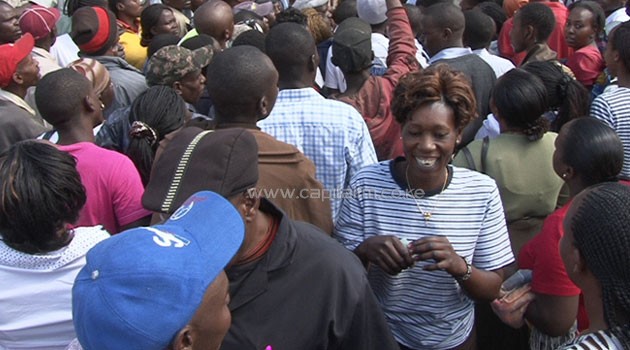
The Rift Valley was at the epicentre of a two-month spate of violence that followed a disputed presidential election in December 2007/FILE
The Rift Valley was at the epicentre of a two-month spate of violence that followed a disputed presidential election in December 2007.
Across the country, more than 1,100 people were killed and over half a million people were forced from their homes.
Members of the Kikuyu ethnic group mostly backed the Party of National Unity led by then-president Mwai Kibaki, while Kalenjin, Luo and Luhya votes went mainly to the opposition Orange Democratic Movement (ODM).
When Kibaki was declared the winner, outraged ODM supporters alleged that the polls had been rigged.
Following the conflict, a power-sharing peace deal was brokered between the opposing political factions in February 2008.
The town of Total has a mixed population of Kalenjins, Kikuyus, Luos and Kisiis. Tensions among the different communities remained high well after the end of the violence.
Many people were displaced during the violence, and when they began returning in 2009, most found their homes occupied by others.
Many of the displaced people had little money to restart businesses destroyed in the unrest. Among them was Jane Mburu, a Kikuyu who used to own a shop in Total but lost her entire stock, worth more than one million shillings when she fled in 2008.
When she returned a year later, she was told she was not welcome.
“When we came back, the Kalenjin saw that their enemies had come back and there was animosity between us,” Mburu told IWPR. “One Kalenjin lady once told me that even though we had come back, we were not going to live here for long.”
According to Mburu, the mistrust extended to church services, where it was impossible to sit next to someone from a different community or shake their hand.
“We were so bitter as a community that even after coming back one could go to church and [have to] look for a seat where members of their community are seated,” Mburu said.
Instead of admitting defeat, Mburu teamed up with other women to create a financing mechanism for joint business ventures.
They called their community banking scheme Mwanzo Mwema, a Swahili word meaning “a good start”.
In a system called “table banking”, members pool whatever modest savings they have, allowing the group as a whole to make joint investments and provide a lending service at a minimal rate of interest.








































